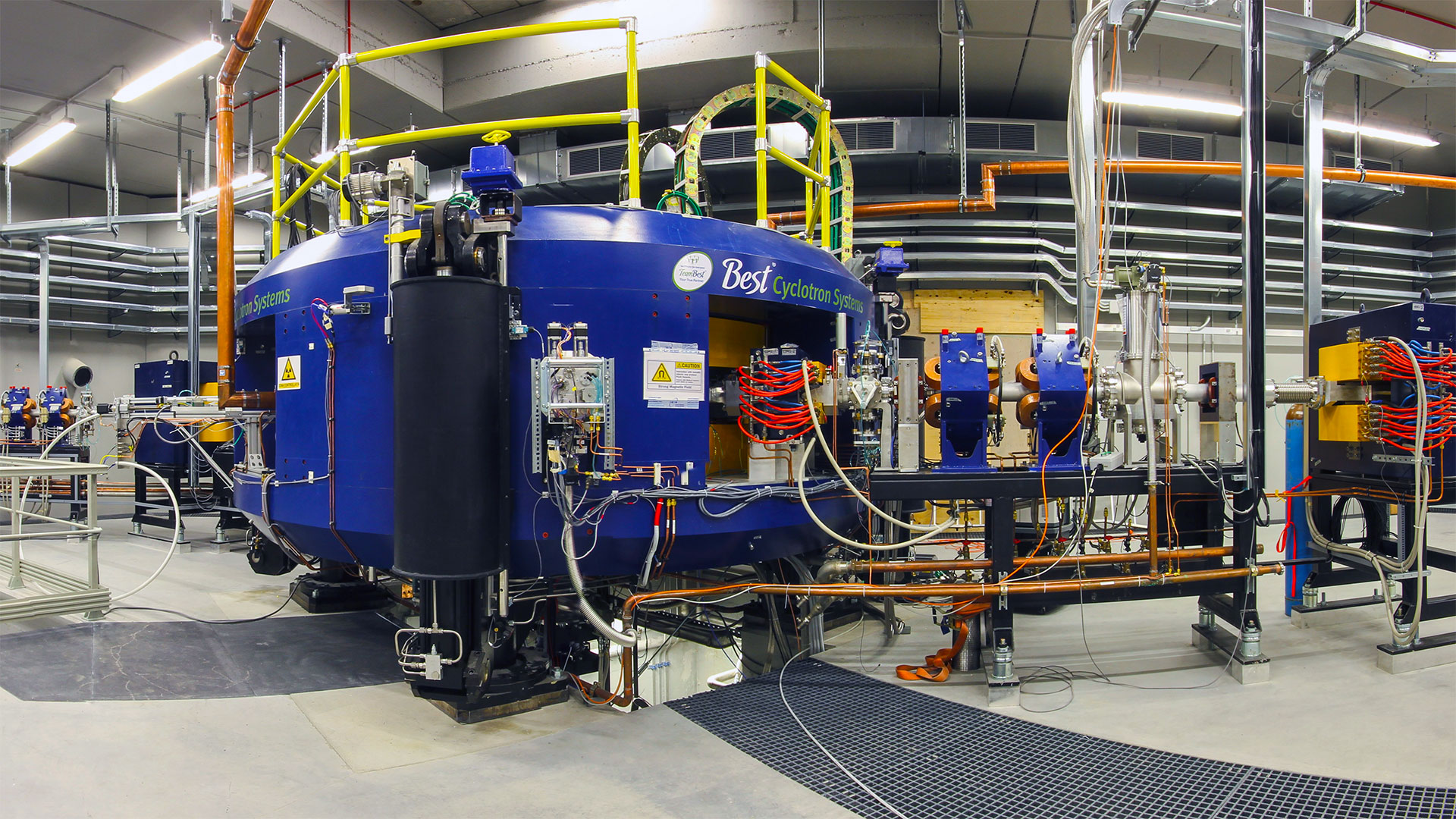
SPES (Selective Production of Exotic Species) is one of the flagship projects of the INFN Legnaro National Laboratories and at its heart there is a cyclotron for protons. SPES aims to create an innovative research infrastructure, dedicated both to fundamental physics studies and to interdisciplinary physics developments, in particular the production of radionuclides of medical interest, for imaging and oncology therapy. The implementation of the project is organised into five phases, the first of which has recently concluded successfully.
After a long cyclotron shutdown, necessary for modernisation of SPES project buildings and infrastructures, the first phase of project implementation included various activities. Among these the manufacturing and test of the new plasma chamber for the ion source, the replacement of part of RF amplifiers and their tuning, the RF conditioning of both RF cavities and the control system upgrade.
Cyclotron and the new recently installed transport line were optimised for three different extraction energies: 35 MeV, 50 MeV and 70 MeV. Proton beams with the three energies were used to irradiate thin targets of different materials. In particular, a natural Zinc target was irradiated at an energy of 50 MeV, which allowed the observation of the gamma-decay of the theragnostic radionuclide Copper-67.
This achievement marked the completion of Phase 1 of SPES, accomplished thanks to the phased approach for the project implementation and the full commitment of all the laboratory’s divisions.
Using the same approach, the whole laboratory is now working on the next phases to reach SPES project completion: low energy radioactive ion beam production for mid 2025 (phase 2), ADIGE commissioning as new stable beam injector for ALPI accelerator complex for mid 2026 (phase 3), radioisotopes production facility implementation (phase 4) and radioactive ion beams post-acceleration with ADIGE-ALPI complex (phase 5) both for the end of 2027.






